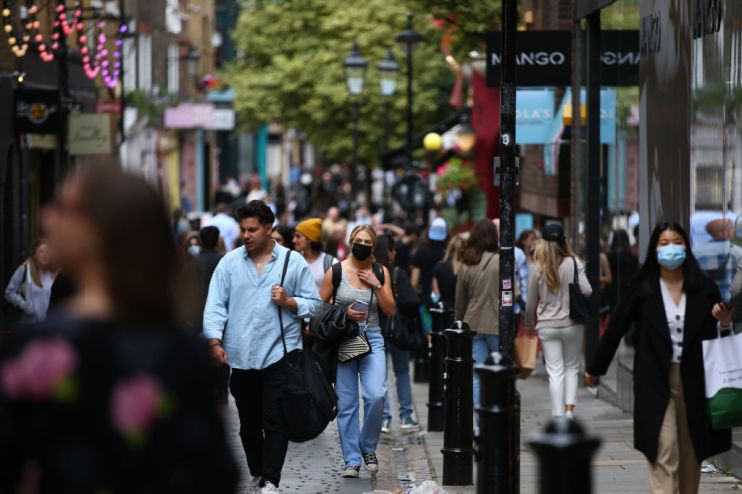UK more likely than US and Europe to tip into recession, Goldman Sachs warns

The UK is more likely to tip into recession than the US and Europe due to the country suffering from a more “acute” cost of living crisis, a top Wall Street investment bank has warned.
Rampant inflation in Britain, running at a four decade high of 9.1 per cent and the highest in the G7, will send a chill through household spending and weigh on growth, according to Goldman Sachs.
Inflationary pressures will be dovetailed by the Bank of England lifting interest rates rapidly in the second half of this year.
Goldman thinks governor Andrew Bailey and co will lift rates 50 basis points at both of their next two meetings, before slowing to 25 basis point rises that will eventually take borrowing costs to 2.75 per cent, the highest level since 2008.
Higher rates will heap extra pressure on mortgage holders by raising interest payments. It will also increase the cost of borrowing and make it more attractive to save, in theory curbing demand and inflation.
“Continuing cost-of-living pressures combined with tight monetary policy could lead to a more protracted downturn,” Goldman said.
The investment bank thinks there is a 45 per cent chance the UK will tip into recession, higher than the probability assigned to the US and eurozone.
In Goldman’s downside scenario, the UK is already in the teeth of a downturn, with the economy contracting in the current quarter through to the second quarter of next year.
A technical recession is defined as two successive quarters of negative growth.
However, in its most likely scenario, Britain avoids a recession, driven by households deploying savings built up during the pandemic to maintain spending.
Separate figures published by the Office for National Statistics this morning revealed real household incomes dropped 0.2 per cent in the first quarter, larger than first estimated, marking the longest period of falling living standards since the 1950s.
The government will have to return to the dispatch box and ramp up support households to cushion the cost of living crunch, Goldman thinks.
“Given the recent succession of policy interventions focused on supporting households, and the result of the no-confidence vote in [prime minister] Johnson, we think the government is now more likely to respond further in the coming weeks if cost-of-living pressures do not fade,” Goldman said
“As such, we could see slightly stronger growth in the second half of the year.”
UK finance gap widens to largest level on record
The gap between the UK’s exports and its imports has widened to its largest level on record, revealed new figures published today.
The UK’s current account deficit – a gauge of how much money the UK needs to bring in from abroad to finance imports – yawned to £51.7bn in the first three months of the this year, the highest amount since records began in 1955, according to the Office for National Statistics (ONS).
The statistics agency cautioned readers its latest set of data are highly uncertain.
The jump in imports has been driven by energy prices shooting up as a result of ongoing supply chain disruption that has been amplified by Russia’s invasion of Ukraine.
As a share of the UK economy, the deficit climbed to over eight per cent.
A current account deficit can weaken a country’s currency by boosting its supply in foreign exchange markets.
The pound is on course to post its deepest six month fall against the dollar since 2016.